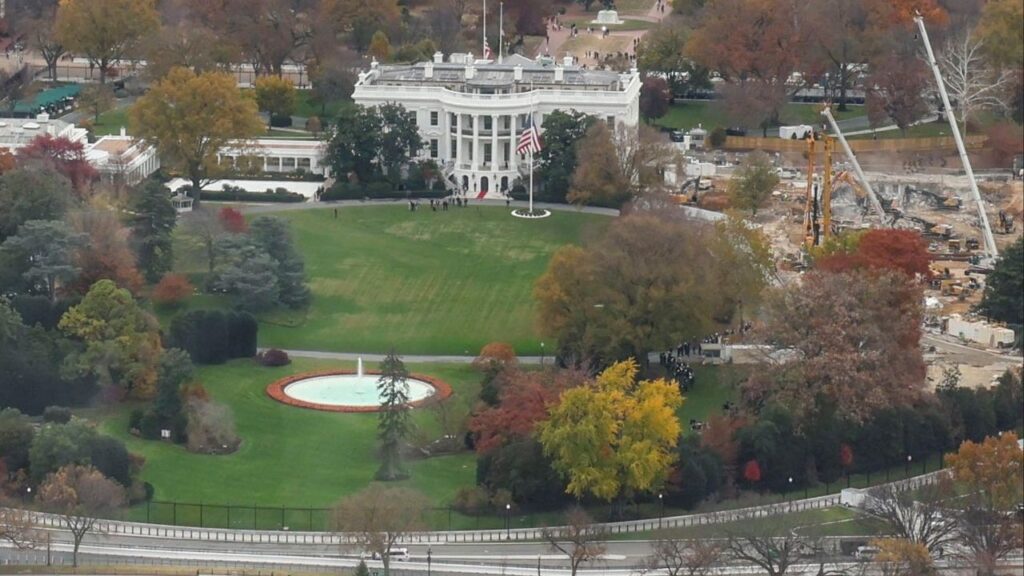Fresno voters said in 2018 they wanted 10% of local cannabis taxes set aside for the public good. Even with dispensaries up and running, the commission that decides how to spend the funds has yet to form. (GV Wire Composite/Paul Marshall)

- Fresno voters passed Measure A paving the way for legal cannabis sales in 2018.
- Measure A set aside 10% of local marijuana taxes and established a commission on how to spend the money.
- More than five years later, the money sits and the commission has yet to form.
Share
|
Getting your Trinity Audio player ready...
|
More than five years ago, Fresno voters told the city they wanted 10% of local marijuana taxes set aside for the public good. However, implementing some aspects of Measure A has yet to happen.
Passed overwhelmingly in 2018 with 71% of the vote, Measure A stipulated that cannabis tax funds would be set aside in a Community Benefit Fund. A nine-member committee would decide direction on how to spend the money.
At the time, collecting and spending the money was aspirational. The first marijuana retail shops did not open until July 2022. Seven retail cannabis shops are now open, with another two planning to open soon — Dr. Green Thumb’s in the Tower on Saturday and Sweet Flower in central Fresno on April 13.
The most recent estimates show the city collecting $2.2 million in cannabis tax revenues for the current fiscal year.
“(Fiscal Year 2024) [c]annabis revenue projected to be below budget based on the number of businesses currently permitted and operating, as well as the number of permits projected to be issued by the end of the fiscal year,” a five-year revenue forecast presented to the city council on March 21 stated.
In 2021, revenues were $409,000; none were collected in 2022; and $1.6 million flowed to the coffers in 2023.
However, tax revenues are projected at $7.1 million for FY 2025.
Money Collected for Benefit Fund
The city says the Community Benefit Fund has $284,000 in its account. None has been spent, and no projects have been identified.
Taxes, set by the city council in 2018, are 4% of gross receipts for retail sales, and manufacturing; and 1% for distribution.
Measure A also required a yearly report from the city controller to the city council, starting in 2019. As best as GV Wire can tell, the only numbers provided are those found in yearly or mid-year budget reports.
Commission Yet to Form
To this day, the committee is dormant. It never even started. The mayor gets two picks, and each councilmember makes a pick.
“The purpose of the Commission shall be to recommend allocation of the revenues received into the Community Benefit Fund pursuant to the goals set forth by Council. The City Council shall have the authority to further define the role and powers of the Commission by resolution as necessary and appropriate form time to time,” the municipal code states.
Several councilmembers gave a proverbial shoulder shrug when asked by GV Wire about the commission.
“I plan to work with admin to get it up and going, but don’t have an exact timeline at this time,” said City Council President Annalisa Perea.
Councilmembers Mike Karbassi, Luis Chavez, and Nelson Esparza gave similar responses, saying there has been no discussion lately about appointing members.
“We’re discussing that prior to the budget conversation I believe … but the process has been slow as you know,” Chavez said.
Mayor Jerry Dyer’s office has yet to comment on when the commission may form.
Measure A Backer Not Worried
Former Fresno City Councilman Clint Olivier was a major supporter for Measure A six years ago. He is not concerned about the slow implementation.
“I am not going to say I am disappointed because I’m encouraged,” Olivier said. “I’m very encouraged by the fact that they’ve opened up (retail cannabis), and a lot of the doomsayers have been proven wrong because the city picked the best operators to do this.”
Olivier said he trusts the Dyer administration and the city council to “pick the optimal time to roll out the rest of the city’s goals.”
No Social Equity Stores Open, but Some Are Close
The city council established 21 retail licenses — three for each of the seven city council districts. Most were approved by 2021, with the first retail shops open by July 2022.
Four of the licenses were set aside for social equity applicants — those with ownership that experienced economic hardships, marijuana-related drug arrests, or other similar issues.
None of the four social equity license holders — Traditional (District 2), Viola, Beyond Rooted (both in District 3), Banyan Tree (District 6) — have opened, but some are getting close.
Isaac Fonseca of Beyond Rooted is currently building. Designs are going through the city review process, and he hopes for a July opening.
Banyan Tree may be the next to open. Ace Castillo, founder and CEO, eyes an April 15 soft opening.
“I feel like this is a way that I can show our community and that cannabis is not the bad guy. There is a way that it can be dispersed responsibly,” Castillo said.
Castillo supported Measure A.
“I just would like to make sure that the city is spending it correctly,” Castillo said. “I hope that it happens sometime soon because I know there’s a lot of places in the community where that money can be used for good.”
Beyond Rooted and Banyan Tree plan to participate in Porch Fest, a free art and music festival scheduled for April 27 in the Tower District.
RELATED TOPICS:
Categories

Visalia Sinkhole Forces Road Closure, Disrupts School Traffic



















